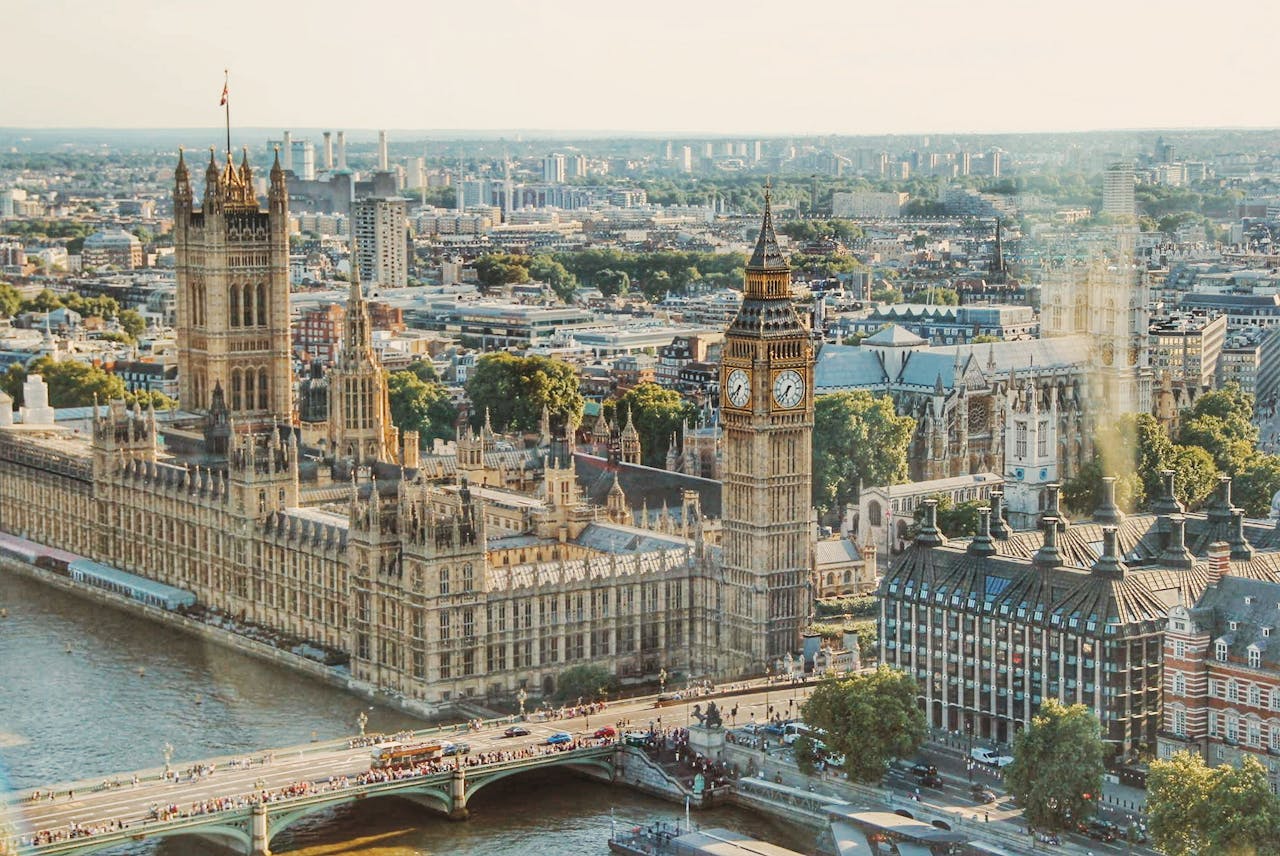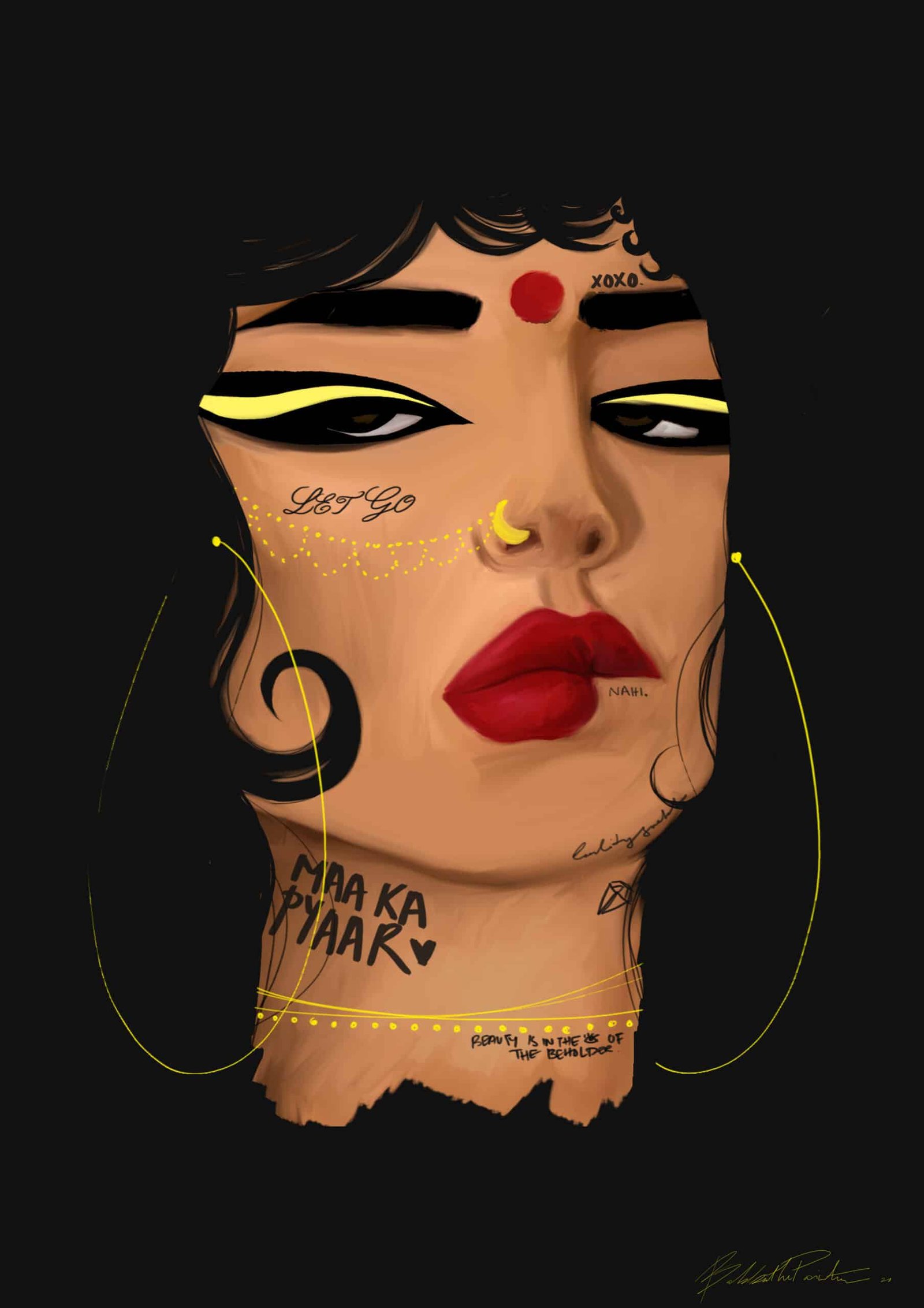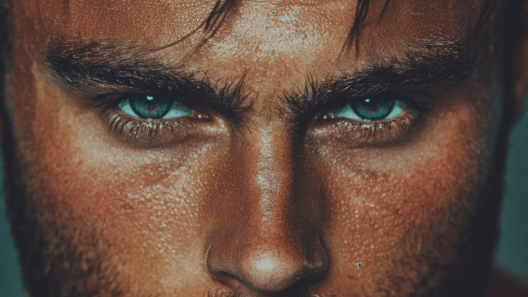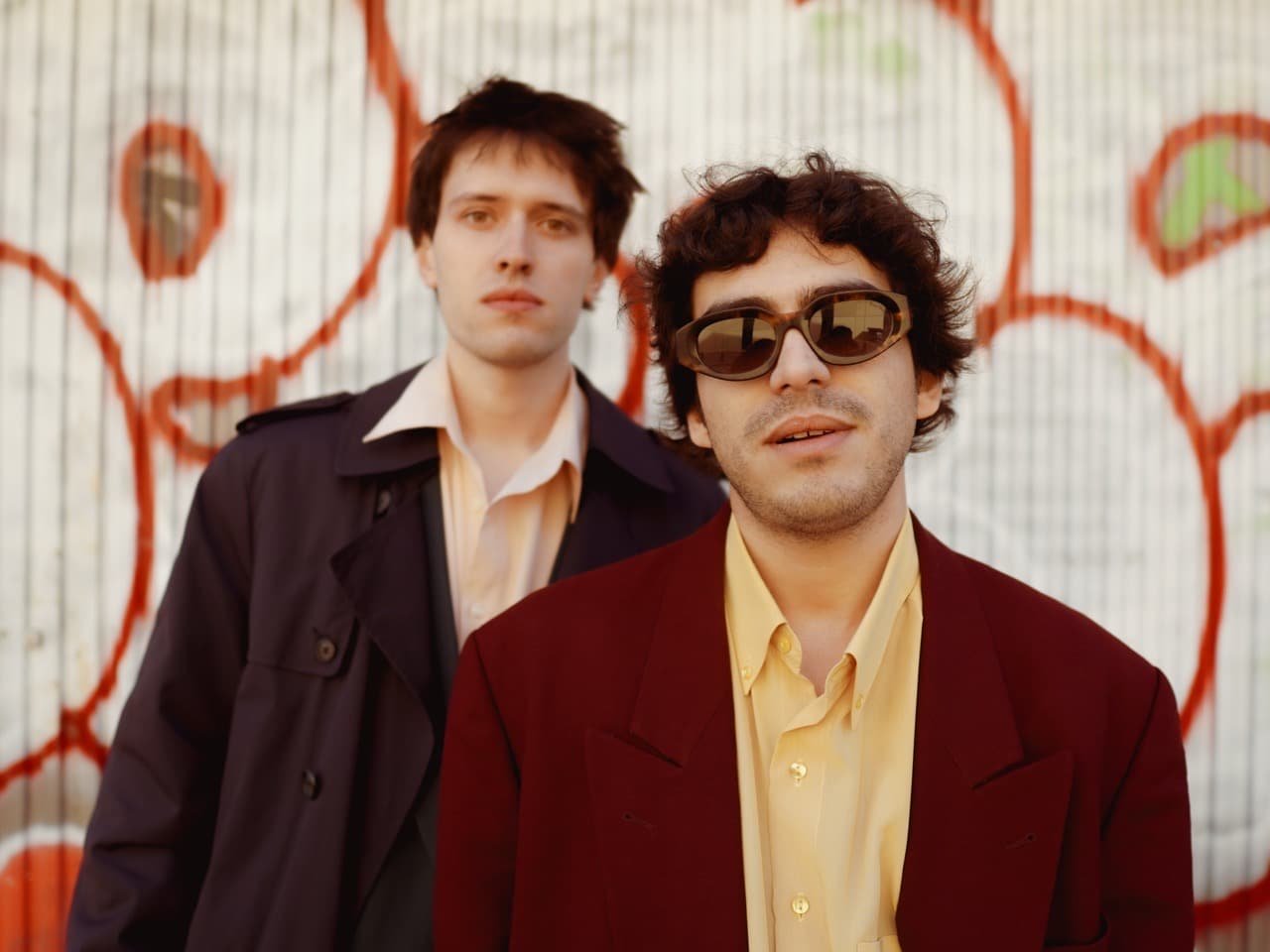With roots in Portugal and hearts scattered across Dublin, Ledher Blue are crafting the sound of existential youth. We sat down with band member Theodore A to talk about their cinematic new single Craic, the hypnotic intimacy of low-budget creativity, and how growing up with conflicted friendships still shapes their work. Their debut album ‘Fait Divers’ drops 8th April—get ready for a sonic trip wrapped in nostalgia, satire, and soul.
What sparked the idea for ‘Craic’ and how did the .5 speed video concept come to life with director Maria Neto?
The .5x video speed concept of Craic – as well as the 2x video speed of Sorrows of Amended Hearts – came early on during writing. When we were writing we got into such a cathartic atmosphere that we started creating a world for each song. Imagining the weather, the voices on the background of the pubs, the eye colour of Rosane; all movement and scenery were also drawn up in conversation and I can clearly remember when we decided on this type of concept. Pedro always said that Craic felt like the credits – of a movie – for our album and that it should be a celebration and a party, the resurgence to reality after the stimulae of the album. And since the celebration is often more chaotic and dynamic than the introspection, we discussed the idea of toning it down; balancing joy and numbness like those whiskey soda enthusiasts. That was also the idea for Sorrows of Amended Hearts but with the opposite intent to characterize the claustrophobia of the cars. The big part of SOAH was the main character sitting on the middle seat; while in Craic the main characters are all in the background and Zé feels like a spectator, absolutely alienated from the party. In a sense they both represent our home town of Guimarães and how we love and hate it.
Your songs seem to walk the line between celebration and melancholy. How do you strike that balance musically?
I don’t think we can get a concrete answer here because it came tremendously intuitive and naturally. We didn’t come from music theory but rather musical ears and taste so in terms of structure and energy – mood maybe – it was all a matter of tri and error. Since the dawn of the band, we got to learn a lot about songwriting. We now use a bunch of music theory and structure to perfect the song, but continue to make mistakes and even incentivize those mistakes – more often than not, that’s where our best songs come from – these are all active considerations we implemented. Now, the balance between celebration and melancholy comes from within. It comes from how our personalities interact with the world and with each other. There was never an active decision for it to exist like this, in the case of it being a decision it was done from within, and we have no control over it whatsoever. So, we can’t really tell you how we reproduce this dance between celebration and melancholy musically, we always felt we did and are very happy that other people can also feel it. Because isn’t it just life? A ballet of leaves and ashes? I saw it once in the field, leaves and ashes swirling through a wind sonata, it looked a lot like Nietzsche.
Ledher Blue was born from both conflict and friendship. How do those opposites continue to shape your creative process?
The same way it did on the beginning. We have known each other for a long time and can be very honest with each other; we kind of adopted radical honesty to the band which I can chuckle and say sometimes has harmed our friendship. However, it is the core of our creativity as a group. There is no bigger ego killer than writing alone and being amazed by your own genius just to show it to the other guy and being met with: “that’s garbage”. It is exhausting and gruelling and I don’t believe it can be achieved between strangers; if we didn’t have the level of friendship we have, surely, we would have punched the soul out of the other, but we do. That’s why we can be pure and unashamed. I mean, the ego feels the shame and the shrinking, but the self never does. This is a very important difference which we only stumbled upon recently but always felt before, we just didn’t know what it was. In some way, we believe this dynamic is what makes us unique, what got us to this sound which we find tender and crude; I believe it is the closest thing both of us have felt to having a baby, where it can be the world’s ugliest baby for everyone else, but we find it beautiful. Shamefully, we love it so much that we take pictures of it every day and post it on social media.
Your lyrics often explore regret, existentialism, and identity. What message do you hope listeners take away from Fait Divers?
What we hope for is meaningless; that is why the album is called Fait Divers. Whenever you create something to lead audiences in a certain direction it stops being honest, it cooks the rawness out. We both feel that the most life changing bodies of art are never direct pedagogy. Whenever something feels too moralistic, I tend to close it, I truly don’t believe it is a goal of art and I got close to depression when I read that late Tolstoi thought the complete opposite. This is not to say that morals cannot be a subject of art but the author shouldn’t deliberately lead the audience to any direction, he can paint directions in different lighting and make one much more appealing than the other, but I don’t believe there should be a sign closing the path. Not only is it blasphemy, in my opinion, but I believe it has the opposite consequence. I never for a second wanted to touch on paint, except when I read “Don’t touch, wet paint.”. The lyrics were toned to represent an atmosphere and a sequence of feelings I have experienced in the near past, a sense of meaninglessness from existence that paradoxically makes everything so much more important through this unwavering longing for the unlived life. It is a story. A walk with the homunculus who lives inside. I got my answers, the character got his and that’s all. The audience will get something relating to their personality, life and culture. Not to compare with him, but everyone who reads Anna Karenina sees a different person than the one Tolstoi wrote about, the dark ringlets of hairs, the shape of smile, the holes in the cheeks; it is all so perfectly detailed but the image to all avid readers is different. We understood it when we talked about her, it was drastically different. How can the same words lead to such different images – which are so vivid that I can almost feel their breath? That is the brilliancy of art, as I am writing this, I felt her again; inside with the philosophers and the poets. Do you know your Anna Karenina? Mine reminds me of pear trees.
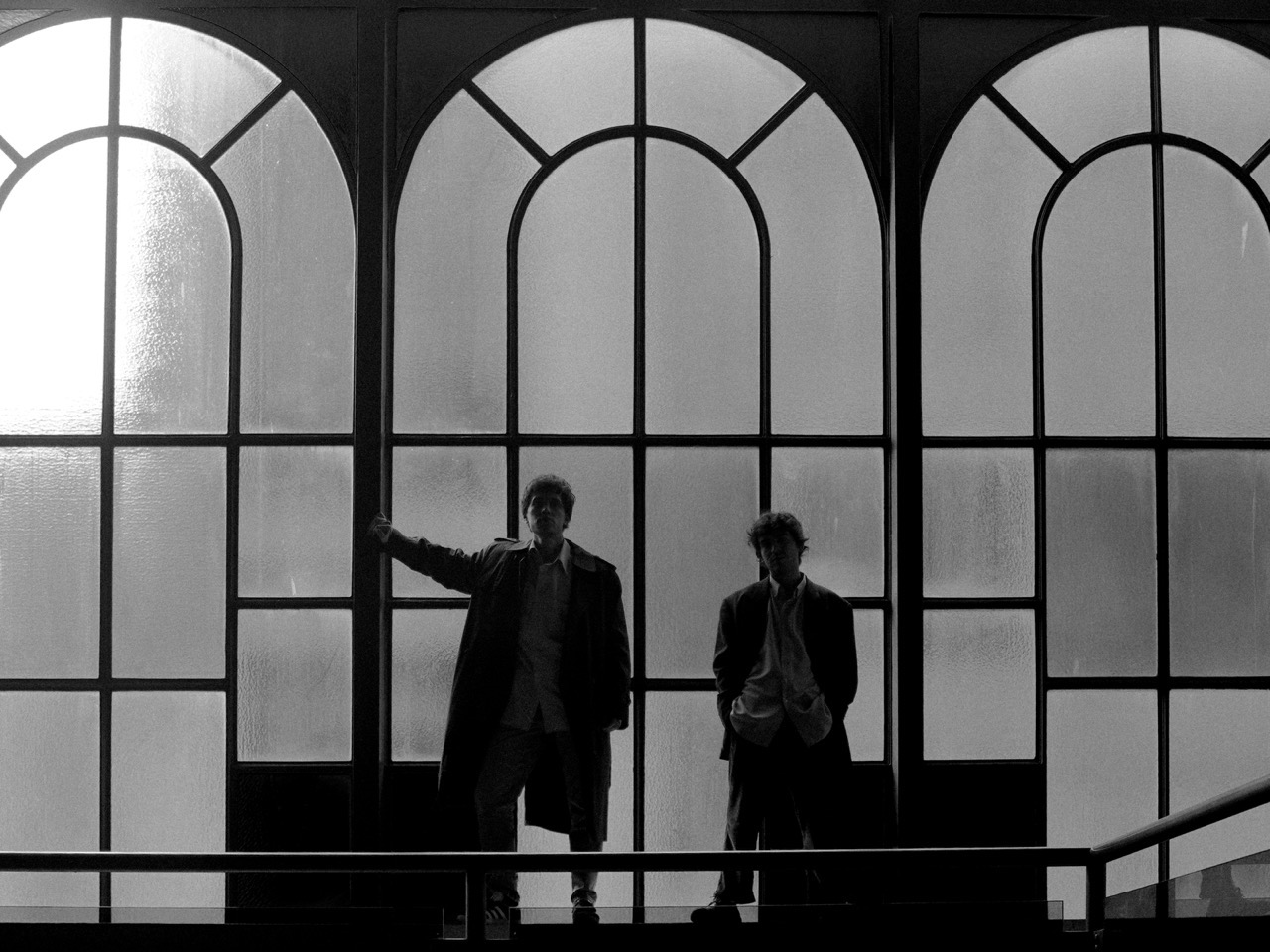
How did Zé’s move to Dublin reshape the themes and tone of the album? Did it bring new clarity or complication?
We don’t think it reshaped the tone, we believe it imploded all previous concepts and led us to a new beginning – is there anything more fascinating than new beginnings?. Therefore, it brought both clarity and complication; clarity in the sense that we then understood what we were supposed to do, in what platform we were writing and about what it should be, however, it led us to a world of complications because everything felt so new and scary. We have both been lucky enough to travel the world and meet other cultures, which brings more clairvoyance than any school subject, but we could always very clearly pinpoint “home” on the map. We saw its rust on the map of our mind. Dublin meant that the pin was not so special; it meant our uniqueness was transparent. We understood that all of our problems were outside of this small town, and that at least there was another place where all the innate characteristics of Guimarães breathed and slept. The weather was colder, the rain softer, the skins whiter, the hair blonder but the rest was home. It meant we knew how to save it.
The sound of Ledher Blue shifts between post-punk, alt-rock, and even synth-pop. How intentional is your genre fluidity?
As I said previously, our tastes in music are different and we both enjoy things the other despises. I believe said fluidity comes from that disparity and our commitment to creating sounds the other would also like. It is normal for one of us to prefer a song that the other doesn’t like quite much but we make sure that everything we put out is enjoyed by both. That being said, we would never want to play just one specific style; it is too static and hinders creativity. What we strive to create is a habitat where our ideas flow freely, independent of the previous song, but on the same musical landscape. In Portugal we have desert-type land, clean sand sunny beaches, big grey metropolitan areas, rocky grey coastline, humid green rural areas, dry darker olive tree fields, all of that encapsulated in such a small country; that’s what we manage to emulate, I guess, a lot of diversity but on the same domain.
You mention the concept of Sebastianism as a unifying myth. Do you think modern audiences still crave that kind of collective hope?
I would argue more than ever. One of the greatest catalysts for writing this new album was the distraughtness and defeatism we saw smashed in our friends and ourselves. The new societal developments clumsily crushed by technology have completely changed the way people live and enjoy life. The lack of purpose has usually been seen has the cause of our generation’s problem; the anxiety of living and the panic of dying. We felt it more than ever with the aggravating factor of social media inducing us to believe that there is always more to live, always something you are missing, always something to change, to climatize, to evolve, to accommodate; and there’s no better time than now to start—get up earlier, split the day into two, no, three days! god, two isn’t enough. And when you try to get a hand of something, there is a new trend around, there is something you really should know and something you should be appalled. There’s no time to do all of this if one didn’t sleep or work, yet somehow, we are all expected to manage. It’s an active campaign against idleness – against thought itself. I remember waiting for the bus as a kid like it was nothing but now if the phone dies, I feel everything will collapse. We need collective hope; we’d argue there has never been a greater need for it. And who better to help than the King who could smugly walk past Narcisus; the one who disappeared with our independence. Wouldn’t it be fitting for him to be the saviour?
Have you ever spent time or performed in Shoreditch? What would you recommend to emerging bands trying to cut through the noise in London’s music scene?
We’ve never been to Shoreditch, but we’re planning a live tour. So, if any reader has a venue, let us know and we’ll see if it fits. As for advice, we’re surely not the best ones to give it. We take it as it comes, surfing through adversities. We’ve failed many, many times but just kept going. I guess that’s one piece of advice—make as many mistakes as you can. Don’t let the ‘right’ path be the only path.


